1037. Hallelujah!: Celebrating 40 Years Since the Priesthood Revelation, from Meridian Magazine
Another chapter in the fascinating story of the Priesthood Revelation! It was announced on the radio on the day our son Wayne got married in the Salt Lake Temple! On the way to the Wedding Luncheon we all heard it, and it was the talk of the luncheon! That is one way we can remember what day it was announced. It was officially approved the day before, June 8, 1978.
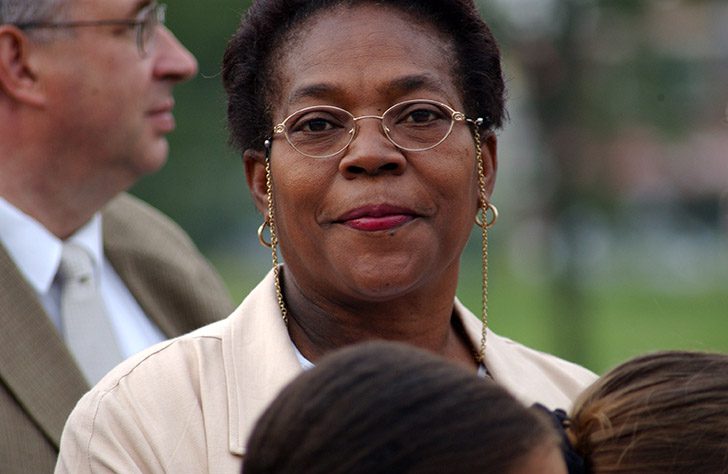
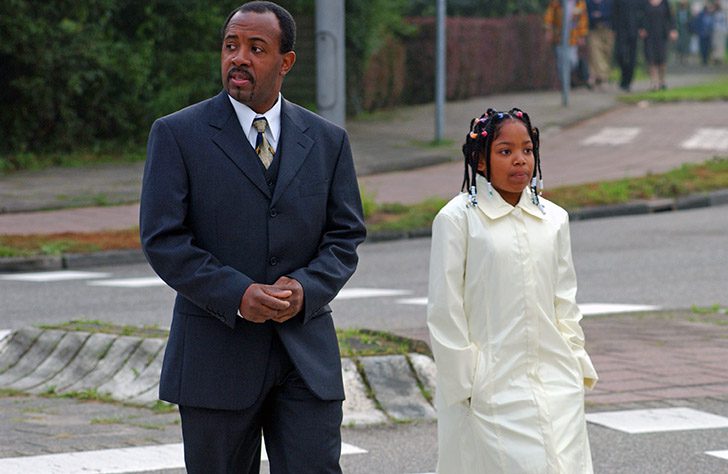


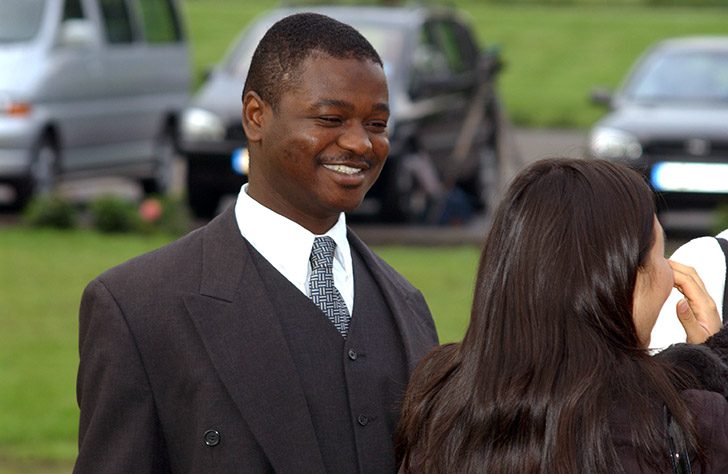

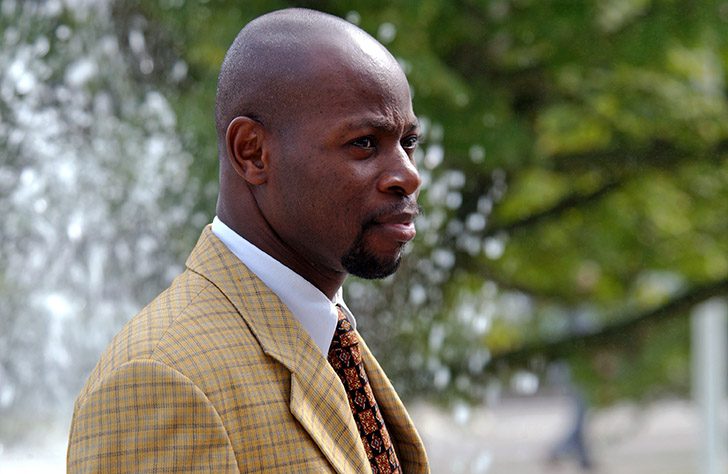
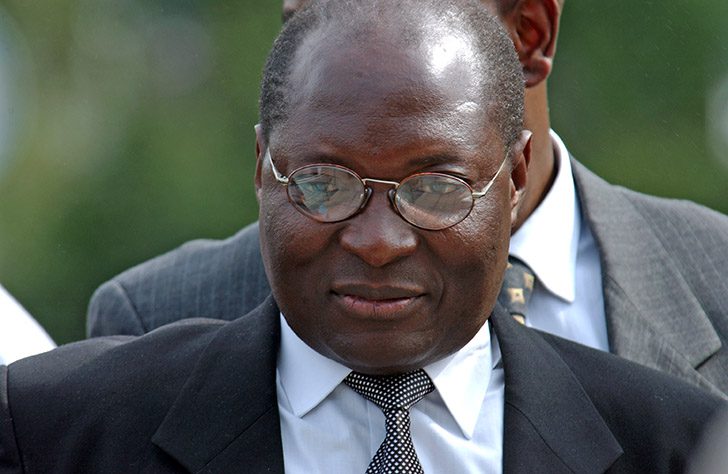
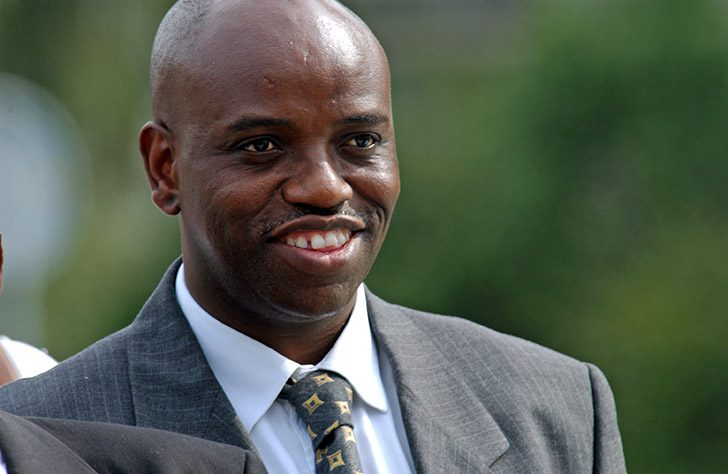
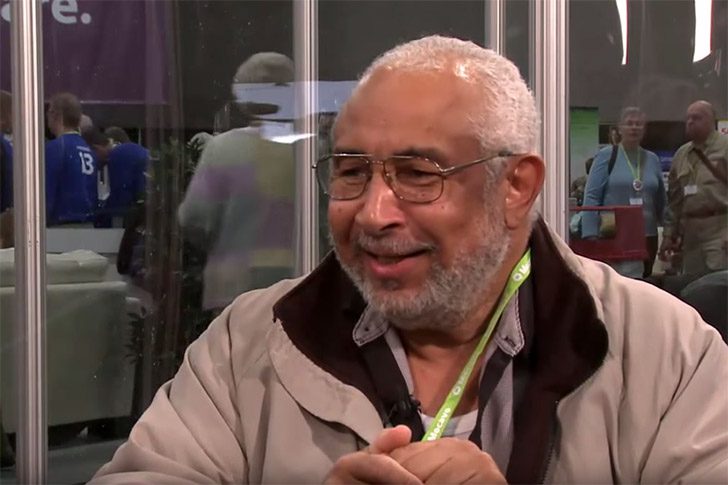
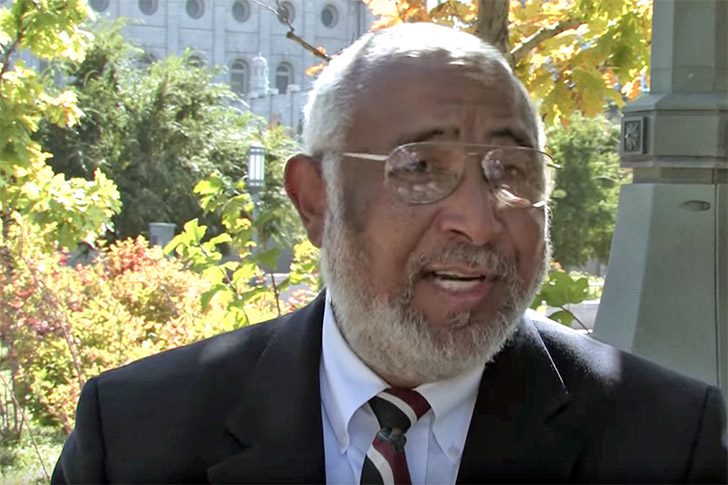
Hallelujah!: Celebrating 40 Years Since the Priesthood Revelation
Sign up for Meridian’s Free Newsletter, please CLICK HERE
If you had already been born and were a member of the Church, June 9, 1978, you remember in vivid detail exactly where you were the minute you heard that President Spencer W. Kimball had received a revelation extending the priesthood to all worthy males.
Elder Marion D. Hanks, an emeritus General Authority who was there said, “Hallelujah. I thank God I lived long enough to see this day.”
Church historian, Leonard Arrington, said that within five minutes “my son Carl Wayne telephoned from New York City to say he had heard the news. I was in the midst of sobbing with gratitude for this answer to our prayers and could hardly speak with him. I was thrilled and electrified. I felt like the Prophet Joseph Smith said we should feel about the gospel: “A voice of gladness! A voice of mercy from heaven; and a voice of truth out of the earth; glad tidings for the dead; a voice of gladness for the living and the dead; glad tidings of great joy.” (Doctrine and Covenants 128:19)
Rarely has news of an event spread faster than this one, taken the breath away of a people, most of whom had been long pained by the denial of the priesthood to those of African descent.
Newspapers delayed their editions to add the announcement. Time and Newsweek stopped their presses on their weekend editions. The New York Times made it a front-page story, and newspapers that had been neutral or hostile to the Church carried laudatory editorials. U.S. President Jimmy Carter commended President Spencer W. Kimball for “compassionate prayerfulness and courage.”
“All of us had the sense of discomfort at the continuing policy that kept good and honorable people from the blessings of their possibilities,” said Elder Hanks. “For 39 years I was a General Authority and had to find ways to respond to what was a troubling reality that there were those worthy and wonderful people who were not yet permitted to hold the priesthood. You can’t respond to questions about this for years, and know that the Lord tells us that he “esteemeth all flesh in one” (1 Nephi 17:35) and not look forward to a change.”
He remembers being on the top of a hill in Vietnam, long before the revelation, talking to a young black member of the Church who had just had his legs blown off, holding his hand and weeping. “All I could say to him is that one day there will be additional information on this subject, and when that happens the Lord will give it to the president of the Church.”

President Kimball had long been sensitive to this issue. For instance, in March 1976, he was present for the laying of the cornerstone of the Sao Paulo, Brazil temple and met Ruda and Helvecio Martins, devoted black members, converted in 1972. They had donated money and time to the temple, knowing full well that as things stood, they would not be receiving its blessings. The bank account, which they had carefully saved for their son’s mission, went to another young man who would be able to serve. Seeing their devotion–and many others like them–moved and grieved President Kimball.
President Kimball wasn’t the first prophet to ponder and pray over the exclusion policy of the priesthood. Other prophets had made pronouncements to the effect that someday the priesthood would be made available to all worthy male members.
Wilford Woodruff had written, “But the day will come when all that race will be redeemed and possess all the blessings which we now have.” President McKay had said, “Sometime in God’s eternal plan, the Negro will be given the right to hold the Priesthood.”
“According to Mormon thinking,” noted Leonard Arrington, “God’s love would not permit an indefinite continuation of exclusion from the temple of any worthy person.”

President McKay had prayed earnestly to the Lord for permission to rescind the exclusion, and “Harold B. Lee, shortly before his death, spent three days and nights fasting in the upper room of the temple, praying earnestly to the Lord for guidance on this matter,” without receiving an answer. Both were anxious and prepared, but in the inscrutable timing of the Lord, the revelation would come later, when Spencer W. Kimball was the prophet.
President Kimball had a long record of reaching out to people of many ethnicities. In his early years as an apostle, his assignment had been to the Indian nations, adding to his sensitivity.
Beginning in 1976 as the prophet, he began a systematic routine of praying, fasting and supplicating the Lord on this matter. In Teachings of Spencer W. Kimball, compiled before the 1978 revelation, he affirms, “The doctrine or policy has not varied in my memory. I know it could. I know the Lord could change his policy and release the ban and forgive the possible error which brought about the deprivation. If the time comes, that he will do, I am sure. These smart members who would force the issue, and there are many of them, cheapen the issue and certainly bring into contempt the sacred principle of revelation and divine authority.”
He also acknowledged that he didn’t understand the basis of the exclusion. “The things of God cannot be understood by the spirit of men. It is impossible to always measure and weigh all spiritual things by man’s yardstick or scales. Admittedly, our direct and positive information is limited. I have wished the Lord had given us a little more clarity in the matter.”
It was, then, with both keen desire, and awe and reverence for God, that he began his heart-felt petitions, not believing for a moment that the matter was merely in his hands to make a change.

The spring of 1978 found the First Presidency and the Twelve discussing the subject often in the upper rooms of the temple at their Thursday meetings.
According to Joseph F. McConkie, “President Kimball did not act in isolation on the matter. He freely sought the feelings of his counselors and the Quorum of the Twelve. In March of 1978 he invited any of the Twelve who desired to do so to make any expressions they desired to him in writing so that he could carefully consider them. Three members of that Quorum responded to this invitation, Elders Monson, Packer, and McConkie. Elder McConkie’s memo centered on the doctrinal basis for conferring the Melchizedek Priesthood on the Blacks. After the revelation was received he freely shared with his family the scriptural chain of thought that he had suggested to President Kimball. The power of it was in its simplicity. He simply saw things in passages of scriptures that the rest of us had conditioned ourselves not to see.
“Dad reasoned that inherent in any passage of scripture that promised that the gospel would go to all mankind was the promise that it–with all its blessings-must go to the Blacks,” records Joseph Fielding McConkie of his father. “The Third Article of Faith, for instance, states that we believe that through the atonement of Christ ‘all mankind may be saved, by obedience to the laws and ordinances of the Gospel’ (italics added.) The word saved as used in this text, he said, meant to be exalted or obtain all the blessings of the celestial kingdom. To illustrate this point he quoted D&C 6:13, ‘If thou wilt do good, yea, and hold out faithful to the end, thou shalt be saved in the kingdom of God, which is the greatest of all the gifts of God; for there is no gift greater than the gift of salvation,’ and Joseph Smith’s statement that ‘Salvation consists in the glory, authority, majesty power and dominion which Jehovah possesses and in nothing else.’ (Lectures on Faith, 7:9; Italics added.)
“He also reminded us that all those who accept the gospel become the seed of the family of Abraham and are entitled to all of the blessings of the gospel. Jehovah told Abraham that his seed would take the gospel and the ‘Priesthood unto all nations,’ and that ‘as many as receive this Gospel shall be called after thy name, and shall be accounted thy seed, and shall rise up and bless thee, as their father.’ This, of course, is the matter of being adopted into the house of Israel.
“Jehovah also promised Abraham that when his literal seed took the message of salvation to ‘all nations,’ that then ‘shall all the families of the earth be blessed, even with the blessings of the Gospel, which are the blessings of salvation, even of life eternal.’ (Abraham. 2:9-11.)
“In his funeral address for Elder McConkie, Elder Packer observed that ‘President Kimball has spoken in public of his gratitude to Elder McConkie for some special support he received in the days leading up to the revelation on the Priesthood.’ It would be hard to suppose that that ‘special help’ did not include the assurance of his gospel understanding as found in the doctrinal analysis just reviewed.”

President Kimball described his own process of seeking revelation this way: “I remember very vividly that day after day I walked to the temple and ascended to the fourth floor where we have our solemn assemblies and where we have our meetings of the Twelve and the First Presidency. After everybody had gone out of the temple, I knelt and prayed. I prayed with much fervency. I knew that something was before us that was extremely important to many of the children of God.
I knew that we could receive the revelations of the Lord only by being worthy and ready for them and ready to accept them and put them into place. Day after day I went alone and with great solemnity and seriousness in the upper rooms of the temple, and there I offered my soul and offered my efforts to go forward with the program. I wanted to do what he wanted. I talked about it to him and said, “Lord, I want only what is right. We are not making any plans to be spectacularly moving. We want only the thing that thou dost want, and we want it when you want it and not until.”

President Gordon B. Hinckley said in an October 1988 Ensign,”I was not present when John the Baptist conferred the Aaronic Priesthood. I was not present when Peter, James, and John conferred the Melchizedek Priesthood. But I was present and was a participant and a witness to what occurred on Thursday, June 1, 1978. My memory is clear concerning the events of that day.
“Each first Thursday of the month is a day for fasting and the bearing of testimony by the General Authorities of the Church. So many of the Brethren are absent from home on the first Sunday of the month because of assignments to stake conferences that we hold our monthly testimony meeting in an upper room of the Salt Lake Temple the first Thursday of the month. The Thursday of which I speak was June 1, 1978. We heard testimonies from some of the brethren, and we partook of the sacrament of the Lord’s Supper.
“It was a wonderfully spiritual meeting, as are all such meetings in these holy precincts and under these circumstances. Then the members of the First Quorum of the Seventy and the Presiding Bishopric were excused, while there remained the president of the Church, his two Counselors, and ten members of the Council of the Twelve-two being absent, one in South America and the other in the hospital.
“The question of extending the blessings of the priesthood to blacks had been on the minds of many of the Brethren over a period of years. It had repeatedly been brought up by Presidents of the Church. It had become a matter of particular concern to President Spencer W. Kimball.
“Over a considerable period of time he had prayed concerning this serious and difficult question. He had spent many hours in that upper room in the temple by himself in prayer and meditation.
“On this occasion he raised the question before his Brethren-his Counselors and the Apostles. Following this discussion we joined in prayer in the most sacred of circumstances. President Kimball himself was voice in that prayer. I do not recall the exact words that he spoke. But I do recall my own feelings and the nature of the expressions of my Brethren. There was a hallowed and sanctified atmosphere in the room. For me, it felt as if a conduit opened between the heavenly throne and the kneeling, pleading prophet of God who was joined by his Brethren. The Spirit of God was there. And by the power of the Holy Ghost there came to that prophet an assurance that the thing for which he prayed was right, that the time had come, and that now the wondrous blessings of the priesthood should be extended to worthy men everywhere regardless of lineage.
“Every man in that circle, by the power of the Holy Ghost, knew the same thing.
“It was a quiet and sublime occasion.
“There was not the sound “as of a rushing mighty wind,” there were not “cloven tongues like as of fire” (Acts 2:2-3) as there had been on the Day of Pentecost. But there was a Pentacostal spirit, for the Holy Ghost was there.
“No voice audible to our physical ears was heard. But the voice of the Spirit whispered with certainty into our minds and our very souls.
“It was for us, at least for me personally, as I imagine it was with Enos, who said concerning his remarkable experience, “And while I was thus struggling in the spirit, behold, the voice of the Lord came into my mind.” (Enos 1:10.)
“So it was on that memorable June 1, 1978. We left that meeting subdued and reverent and joyful. Not one of us who was present on that occasion was ever quite the same after that. Nor has the Church been quite the same.”

Leonard Arrington, who interviewed many of those present said, “At the end of the heavenly manifestation [President] Kimball, weeping for joy, confronted the church members, many of them also sobbing, and asked if they sustained this heavenly instruction. Embracing, all nodded vigorously and jubilantly their sanction. There had been a startling and commanding revelation from God-an ineffable experience.”
Those Arrington interviewed said, “the gathering, incredible and without compare, was the greatest singular event of their lives. Those I talked with wept as they spoke of it. All were certain they had witnessed a revelation from God.”

An official announcement of the revelation, dated June 8, 1978, was announced to the press the next day, on June 9. Arrington wrote, “Here was indisputable evidence of God’s presence and direction in these latter days-divine reaffirmation of the faith and values of our church.” It read:
To all general and local priesthood officers of The Church of Jesus Christ of Latter-day Saints throughout the world:
As we have witnessed the expansion of the work of the Lord over the earth, we have been grateful that people of many nations have responded to the message of the restored gospel, and have joined the Church in ever-increasing numbers. This, in turn, has inspired us with a desire to extend to every worthy member of the Church all of the privileges and blessings which the gospel affords.Aware of the promises made by the prophets and presidents of the Church who have preceded us that at some time, in God’s eternal plan, all of our brethren who are worthy may receive the priesthood, and witnessing the faithfulness of those from whom the priesthood has been withheld, we have pleaded long and earnestly in behalf of these, our faithful brethren, spending many hours in the Upper Room of the Temple supplicating the Lord for divine guidance.He has heard our prayers, and by revelation has confirmed that the long-promised day has come when every faithful, worthy man in the Church may receive the holy priesthood, with power to exercise its divine authority, and enjoy with his loved ones every blessing that flows therefrom, including the blessings of the temple. Accordingly, all worthy male members of the Church may be ordained to the priesthood without regard for race or color. Priesthood leaders are instructed to follow the policy of carefully interviewing all candidates for ordination to either the Aaronic or the Melchizedek Priesthood to insure that they meet the established standards for worthiness.We declare with soberness that the Lord has now made known his will for the blessing of all his children throughout the earth who will hearken to the voice of his authorized servants, and prepare themselves to receive every blessing of the gospel.Sincerely yours,Spencer W. Kimball
N. Eldon Tanner
Marion G. RomneyThe First Presidency
In an interesting note, when I interviewed Camilla Kimball for a video on her life, she explained her experience of the event. She said she had known that Spencer had been troubled and concerned for some time over a matter that absorbed him. She remembered that one day as they were returning from the Salt Lake airport, he had asked to be let off at the temple because he wanted to spend some time in meditation and prayer. She did not know about the revelation on the priesthood until after her daughter, who had heard the announcement on television, called her on the morning of June 9. President Kimball was a man who could keep confidences.
A Bright Future
This revelation had an immediate and tremendous impact on the Church, an eternal gate was thrown open for people here and beyond the veil, for suddenly black members who had felt excluded were invited in. They were no longer standing out at the door knocking. Already on the following Sunday, men who had patiently clung to their testimonies despite their priesthood exclusion, were being presented for ordination.
An entire new era would be ushered in in Africa and many other countries with predominantly black populations. The Spirit which had been poured out upon the prophet had also been moving and lingering among many Africans to prepare them to receive the gospel.

The August, 1990 Ensign noted, “Moses Mahlangu, of Soweto, South Africa, patiently but persistently waited sixteen years for baptism. When he speaks of his long wait to join the Church, Brother Mahlangu compares himself to Cornelius, who he says was “very good in waiting to receive the word of God or to be a member of the Church until the angels came and told him what to do.” (See Acts 10:1-7.)

Dale LeBaron interviewed a man in Ghana named Joseph W.B. Johnson who had been converted after prayerfully reading the Book of Mormon in 1964. Brother Johnson told President LeBaron, “one early morning, while about to prepare for my daily work, I saw the heavens open and angels with trumpets singing songs of praise unto God. I heard my name mentioned thrice: ‘Johnson, Johnson, Johnson. If you will take up my work as I will command you, I will bless you and bless your land.’ Trembling and in tears, I replied, ‘Lord, with thy help, I will do whatever you will command me.’ From that day onward, I was constrained by the Spirit to go from street to street to deliver the message that we had read from the Book of Mormon.” When the missionaries arrived fourteen years later, there were already many unbaptized congregations that Brother Johnson had organized, calling themselves The Church of Jesus Christ of Latter-day Saints.”
The chart below shows how the church began to explode in the region after the revelation on priesthood:
Total Members for Specific Areas for Years Listed
Geographic Area
| Brazil | Caribbean | Africa | |
| 1970 | 39,861 | 523 | 6,433 |
| 1980 | 98,932 | 6,950 | 12,219 |
| 1990 | 367,524 | 55,546 | 50,761 |
| 2000 | 775,822 | 115,610 | 153,565 |
Darius Gray
As great as the significance of the revelation was for new growth, no one felt its impact more personally than long-time African-American church members like Darius Gray, who had sometimes been worn thin sorting out the issues of his identity as a black man excluded from the highest blessings in the Church he loved.
He had taken the missionary discussions and committed to baptism in 1964, but somehow no one had gotten around to tell him about the priesthood exclusion until the night before he was to be baptized during his final interview with the missionaries.

Darius Gray.
Darius said, “I think everyone thought someone else was doing it-or hoped they were. I think everyone was chicken to tell me, but the mission president had made it clear that I could not be baptized unless I understood the restriction.
“I was shocked, but I tried not to let my feelings be known. I thought these are two of the biggest hypocrites on God’s green earth, supposedly representing the Savior, but telling me that I wasn’t equal in God’s eyes. When I left, they didn’t know how I was feeling, but I was in turmoil. I am proud of my race and couldn’t take a back seat to anyone.
“I turned it over to God,” said Darius, “and that night I had a personal revelation that was more than just a burning in the bosom. When that happened, I couldn’t say, ‘I’m out of here.’ Instead I said, ‘I’m not here for man. I’m here because God told me to be here.’
The power of the witness gave Darius the strength for the years ahead that were sometimes rocky. “There are times when I’ve been inactive; my feelings have gotten hurt, and I didn’t want to play anymore, but I never lost my testimony.” The revelation on the priesthood was a balm that healed many wounds.

Now, Darius is president of the Genesis group and said this anniversary celebrating the revelation is about forward looking, not just remembering. He asked members of three choirs who came together for to celebrate at the 25th anniversary why this revelation matters so much, since none of them were of African descent.
Their answer was this: it lifted a burden for all of us. Before we were divided by race, kept at arm’s length. Somehow, the revelation made it easier for us to be family which makes it easier for us to love one another.
Darius sometimes asks a group, “How was the universe created?” They answer, “By priesthood power, through faith.
“And how, he asks is faith powered?” Citing Galatians 5:6, he tells them the answer, “Faith is powered by love.”
“I believe,” he says, “the effect of the priesthood revelation of 1978 allows us to be family more easily and therefore to do nothing less than be prepared to help usher in the second coming of the Savior.”
References
Leonard Arrington, Adventures of a Church History, “The Long-Promised Day [Chicago: University of Illinois Press, 1998] p. 175-85.
Spencer W. Kimball, The Teachings of Spencer W. Kimball, edited by Edward L. Kimball [Salt Lake City: Bookcraft, 1982].
McConkie, Joseph Fielding. Personal correspondence with the author.





Comments